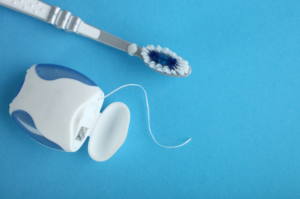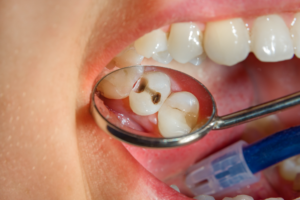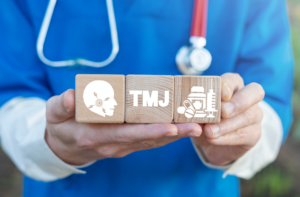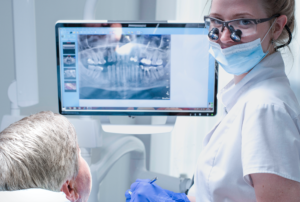
Trauma: Accidentally biting your tongue or scalding it on something straight out of the oven can result in a sore tongue until the damage heals. Grinding or clenching the teeth can also irritate the sides of the tongue and cause it to become painful.
Smoking: Smoking excessively can irritate your tongue and make it sore.
Canker sores: Many people will develop these mouth ulcers on the tongue eventually. The cause is unknown, although they can be worse during periods of heightened stress.
Burning tongue syndrome: Some postmenopausal women develop this syndrome, which makes the tongue feel as if it has been burned.
Enlarged papillae: If one or more of your taste buds become inflamed or irritated, it can swell and form a painful bump on your tongue.
Certain medical conditions: Medical conditions, including diabetes and anemia, can have a sore tongue as a symptom.
Oral cancer: Though most sore tongues are nothing to worry about, you should consult a doctor if you have a lump or sore on your tongue that doesn’t go away within a week or two. Many oral cancers don’t hurt in the early stages, so don’t assume a lack of pain means nothing is wrong.
If you, your family or friends need dental care, we would be honored to provide you with state-of-the-art dental care in our modern dental practice. Refer someone you love to someone you trust!
Presented as a service to the community by Doctors Hoover and Yanda,
39 Milford Drive, Hudson, Ohio 44236. 330-650-0360. www.drshooverandyanda.com

 Though often hailed as “the strongest muscle in the body,” the tongue is made up of a group of muscles that allow us to taste food, swallow, and talk. A healthy tongue is pink and covered with small nodules called papillae.
Though often hailed as “the strongest muscle in the body,” the tongue is made up of a group of muscles that allow us to taste food, swallow, and talk. A healthy tongue is pink and covered with small nodules called papillae.



 The Food and Drug Administration recommends that parents and caregivers not use benzocaine products for children younger than age 2. Benzocaine is an over-the-counter anesthetic, which the FDA notes is marketed under the product names Anbesol, Hurricaine, Orajel, Baby Orajel and Orabase. Benzocaine has been associated with a rare but serious—and sometimes fatal—condition called methemoglobinemia, a disorder in which the amount of oxygen carried through the bloodstream is greatly reduced.
The Food and Drug Administration recommends that parents and caregivers not use benzocaine products for children younger than age 2. Benzocaine is an over-the-counter anesthetic, which the FDA notes is marketed under the product names Anbesol, Hurricaine, Orajel, Baby Orajel and Orabase. Benzocaine has been associated with a rare but serious—and sometimes fatal—condition called methemoglobinemia, a disorder in which the amount of oxygen carried through the bloodstream is greatly reduced. Regular dental visits are important because they can help spot dental health problems early on when treatment is likely to be simpler and more affordable. They also help prevent many problems from developing in the first place. Visiting your dentist regularly is also important because some diseases or medical conditions have symptoms that can appear in the mouth.
Regular dental visits are important because they can help spot dental health problems early on when treatment is likely to be simpler and more affordable. They also help prevent many problems from developing in the first place. Visiting your dentist regularly is also important because some diseases or medical conditions have symptoms that can appear in the mouth. 
 g the teeth, in the development of oral cancers and certain other cancers, as well as the link between periodontitis and cancer mortality on the population level.
g the teeth, in the development of oral cancers and certain other cancers, as well as the link between periodontitis and cancer mortality on the population level.